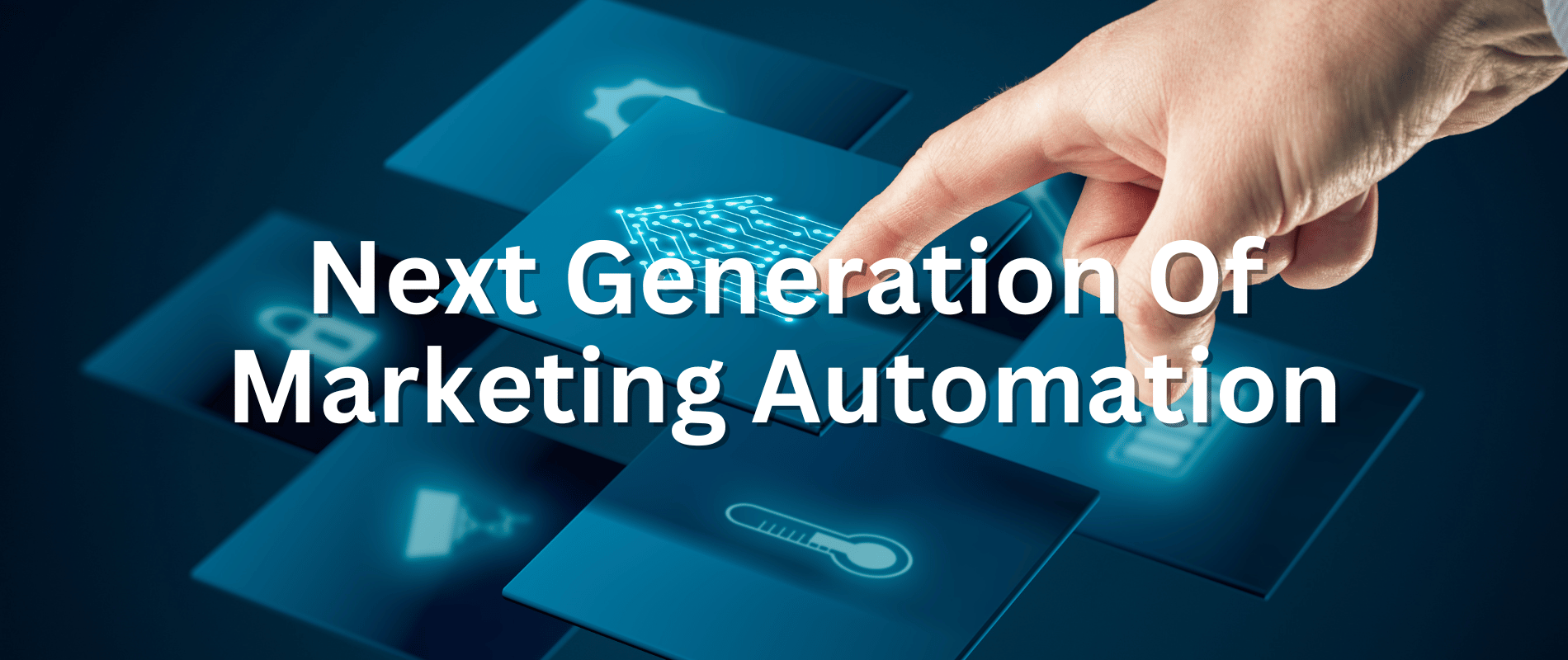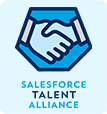Marketing Automation has become a crucial tool for businesses to streamline their marketing efforts, enhance customer engagement, and drive revenue growth. With advancements in technology and changing consumer behaviors, the next generation of marketing automation is poised to revolutionize the way businesses connect with their target audience. In this article, we will explore the evolution and the future of marketing automation.
The Evolution of Marketing Automation
Marketing automation has evolved with technologies and strategies, enabling businesses to automate marketing tasks and processes. Initially focused on basic functions like email marketing and CRM, it now incorporates AI, machine learning, and data analytics for personalized experiences. Modern platforms automate tasks, provide recommendations, and track behavior, improving targeting, efficiency, and engagement. Marketing automation has expanded to omnichannel approaches, integrating with other systems for seamless customer experiences. It empowers businesses to streamline processes, gain insights, and deliver personalized campaigns in the dynamic digital landscape.
The Future of Marketing Automation: Challenges and Opportunities

The future of marketing automation presents both challenges and opportunities. As technology continues to advance, businesses face the challenge of keeping up with the rapidly evolving landscape. They must adapt to new platforms, tools, and strategies to stay competitive. However, this also opens up opportunities for marketers to leverage emerging technologies like AI, machine learning, and big data to enhance automation capabilities. By embracing these opportunities, businesses can further optimize their marketing efforts, improve personalization, and deliver more targeted and impactful campaigns. The future of marketing automation lies in overcoming challenges and leveraging opportunities to drive growth and success.
i. The Rise of Artificial Intelligence in Marketing Automation:
Artificial Intelligence (AI) is at the forefront of the next generation of marketing automation. AI-powered algorithms can analyze vast amounts of customer data, enabling businesses to personalize marketing campaigns, optimize customer journeys, and deliver hyper-targeted content. By leveraging AI, marketers can gain valuable insights into customer preferences, behaviors, and purchasing patterns, allowing for more effective marketing strategies.
ii. Enhanced Customer Experience with Predictive Analytics:
Predictive analytics is another key component of the next generation of marketing automation. By analyzing historical data, businesses can make data-driven predictions about customer behavior and preferences. This enables marketers to deliver personalized content at the right time and through the most effective channels. By anticipating customer needs and desires, businesses can create a seamless and personalized customer experience, driving customer loyalty and increasing conversions.
iii. The Power of Hyper-Personalization:
Hyper-personalization takes personalization to the next level. It involves tailoring marketing messages to individual customers based on their unique preferences, behaviors, and demographics. By combining data from various sources such as website behavior, social media interactions, and purchase history, businesses can create highly targeted campaigns that resonate with their audience. Hyper-personalization not only increases engagement but also boosts customer satisfaction and loyalty.
iv. Omni-Channel Marketing Automation:
Omni-channel marketing automation focuses on delivering a consistent and seamless customer experience across multiple channels, including email, social media, mobile apps, websites, and more. The next generation of marketing automation tools enables businesses to automate their messaging across these channels, ensuring a cohesive brand experience. By leveraging omni-channel automation, businesses can reach customers at every touchpoint, maximizing their chances of conversion and retention.
v. Integration of Chatbots and Conversational AI:
Chatbots and conversational AI have transformed customer service and support. The next generation of marketing automation takes advantage of these technologies to provide real-time, personalized interactions with customers. Chatbots can handle routine inquiries, provide product recommendations, and even complete transactions, freeing up human resources for more complex tasks. With the integration of chatbots and conversational AI, businesses can deliver instant and efficient customer support, enhancing the overall customer experience.
vi. Marketing Automation for Account-Based Marketing (ABM):
Account-Based Marketing (ABM) is a strategy that focuses on targeting and engaging specific accounts or companies rather than individual customers. The next generation of marketing automation platforms enables businesses to implement ABM at scale, automating personalized outreach and engagement with key accounts. By aligning marketing and sales efforts, businesses can effectively nurture high-value accounts, increase conversion rates, and drive revenue growth.
vii. Data Privacy and Compliance:
As data privacy regulations become more stringent, the next generation of marketing automation prioritizes compliance and data protection. Businesses must ensure that their marketing automation platforms comply with regulations such as the General Data Protection Regulation (GDPR) and the California Consumer Privacy Act (CCPA). By adopting secure and privacy-focused marketing automation solutions, businesses can build trust with their customers and protect sensitive data.
viii. Marketing Automation for Small and Medium-Sized Enterprises (SMEs):
In the past, marketing automation was primarily accessible to large enterprises due to high costs and complex implementation. However, the next generation of marketing automation tools offers more affordable and user-friendly solutions tailored to the needs of small and medium-sized enterprises (SMEs). These platforms empower SMEs to automate their marketing efforts, streamline processes, and compete with larger competitors on a level playing field.
ix. Continuous Improvement through Analytics and Testing:
The next generation of marketing automation emphasizes the importance of data analytics and testing to drive continuous improvement. By monitoring key performance indicators (KPIs), businesses can gain insights into the effectiveness of their marketing campaigns and make data-driven decisions. A/B testing and multivariate testing allow marketers to experiment with different variables and optimize their campaigns for maximum impact.
x. Embracing Change and Adaptability:
The final key aspect of the next generation of marketing automation is the ability to embrace change and adapt to evolving market trends. As technology and consumer behaviors continue to evolve, marketers must stay agile and open to adopting new tools and strategies. By embracing change, businesses can stay ahead of the curve and ensure their marketing automation efforts remain relevant and effective.
Frequently Asked Questions (FAQ’s):
Q: How is the next generation of marketing automation different from traditional marketing automation?
A: The next generation of marketing automation incorporates advanced technologies like artificial intelligence, machine learning, and predictive analytics.
Q: How does omnichannel marketing contribute to the success of marketing automation?
A: Omnichannel marketing ensures a consistent customer experience across various channels, allowing businesses to engage customers at multiple touchpoints and provide a seamless journey.
Q: What role does data analysis play in marketing automation?
A: Data analysis enables marketers to gain actionable insights into customer behavior, campaign performance, and market trends, empowering them to make data-driven decisions and optimize their marketing strategies.
Q: How can marketing automation improve lead generation and nurturing?
A: Marketing automation tools help businesses identify high-quality leads. It nurture them through personalized workflows, and guide them through the sales funnel, ultimately increasing conversion rates.
Conclusion:
The next generation of marketing automation promises to revolutionize the way businesses connect with their target audience. From artificial intelligence and predictive analytics to hyper-personalization and omni-channel marketing, businesses have a wide range of tools and strategies at their disposal. By leveraging these advancements, businesses can enhance customer experience, drive engagement, and achieve their marketing goals. To succeed in the ever-changing digital landscape, it is crucial for businesses to stay informed about the latest trends in marketing automation and adapt their strategies accordingly.
Register for our FREE MARKETING AUTOMATION WORKSHOP.




